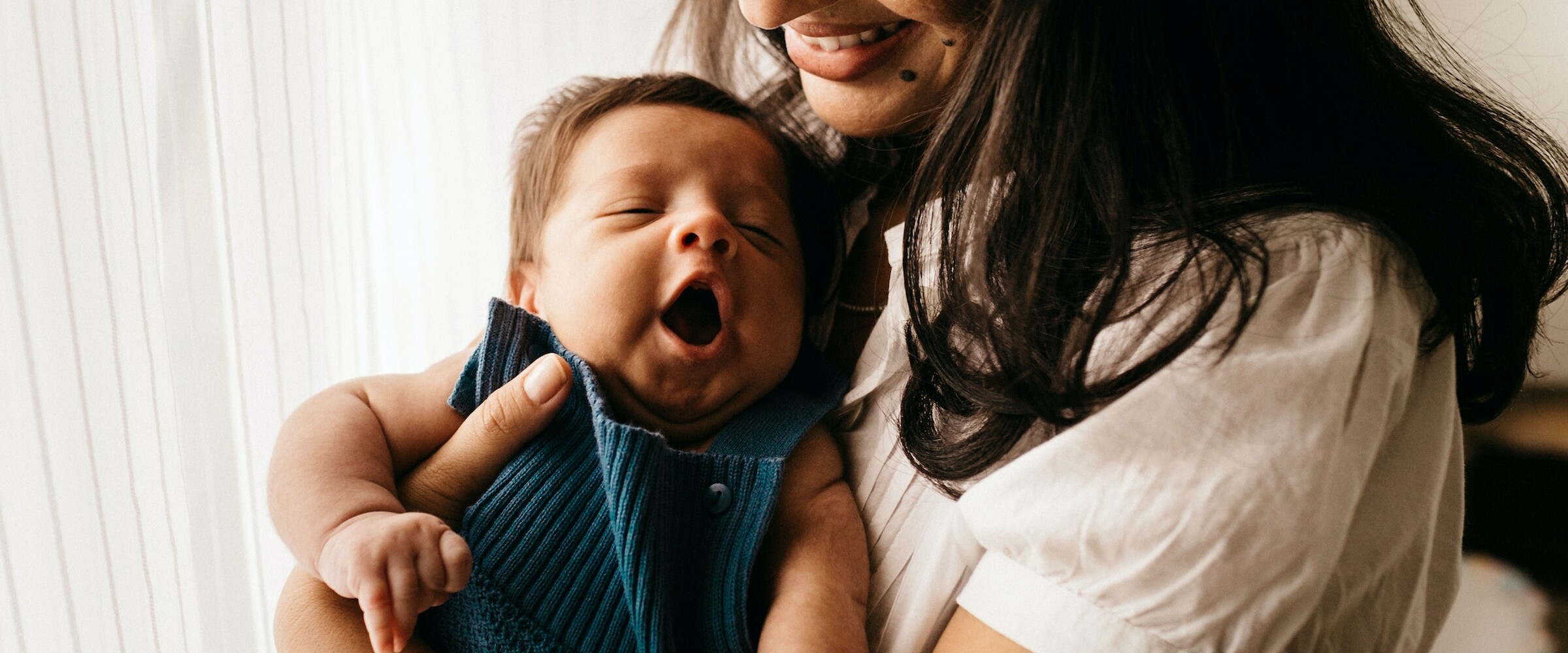
Getting Pregnant After 40, what are the chances?
It is always news when a high profile personality such as Ms Dinnigan, has a child, particularly when the personality in question is a bit older. The difficulty is that these occasions, while very happy for the people involved, give a misleading picture of the actual likelihood of conception in these circumstances.
Written by Dr Peter Illingworth, Fertility Specialist at IVFAustralia
I was recently asked to comment in a Sun Herald article on 26th August (also published online here: Sydney Morning Herald) on Collette Dinnigan, who pregnant at the age of 46, has called on women not to leave it too long to try for a baby.
It is always news when a high profile personality such as Ms Dinnigan, has a child, particularly when the personality in question is a bit older. The difficulty is that these occasions, while very happy for the people involved, give a misleading picture of the actual likelihood of conception in these circumstances. Remember that high profile personalities such as Ms Dinnigan, are human beings who quite rightly value their privacy and so very rarely (quite understandably) talk to the press when things aren’t going so well. It was therefore, a particularly courageous action of Ms Dinnigan, while celebrating her own happiness, to so publicly, point out the difficulties that may face other women, seeking the same fulfilment.
What then, are the issues for women in their forties who are planning to have a child?
The main difficulty is that conceiving is simply harder at that age and, even once a woman does conceive, the risk of miscarriage is higher. Surprisingly, although we have very good data about the effects of age on IVF conception (more shortly), we don’t have very good statistics about the effects of age on conceiving naturally. The limited available data about natural conception comes from old population studies or studies of unique populations, such as the Hutterites of North America, who do not use contraception. Interestingly these data, such as they are, seem to be entirely consistent with the more modern and abundant IVF data. Generally, in one year of trying, 75% of women under 30 years and 66% of 35-year-old women but only 44% of 40-year-old women will achieve a live baby naturally.
The main explanation for this, is that women are born with a finite number of eggs, and from that moment onwards, the number of eggs is declining all the time, until women go through their menopause at around 50-51. Nonetheless, women in their 40s do still ovulate each month. What is it about their eggs that cause all these problems?
A common misunderstanding with some women is that the fact she looks and feels young, and leads a healthy lifestyle, means that her eggs will be healthier.
I regularly see women who have taken enormous care with their fitness and their health. The rest of their body is in great shape, completely fit and ready to carry that longed-for pregnancy. Sadly, despite this, the eggs still can’t do it. The effects of time are remorseless and, sadly, there is no wonder drug to fix it.
Scientists have shown that eggs from older women are more likely to have an abnormal makeup making pregnancy less likely, miscarriage more common and increasing the risk of Down Syndrome, a condition where a child is born with an extra chromosome number 21.
Nor is IVF a cure for this problem. For women, in their early 40s, IVF is still a good thing to try and gives significantly higher success rates than trying naturally. However, IVF success rates fall sharply after the age of 40 and by the time a woman is 45 are close to zero.
So, what’s the good news? Well despite all of the above, many women do conceive in their forties, either by IVF, or naturally, and have very happy healthy families. It is obviously better to have your family earlier, if you can, but all hope is not lost, just because you’re past 40. Conception and early miscarriage are the big problems but, if you do conceive and get past the first few weeks, by far the most likely outcome will be a healthy child. While the risk of Down Syndrome is increased, most of the other problems that affect young children are not increased by being conceived a later maternal age.
Finally, many women worry that by having their children later, their long term health and emotional development may be affected. On the contrary, we now know that the children of older mums grow up to be as healthy and bright as any other child.
